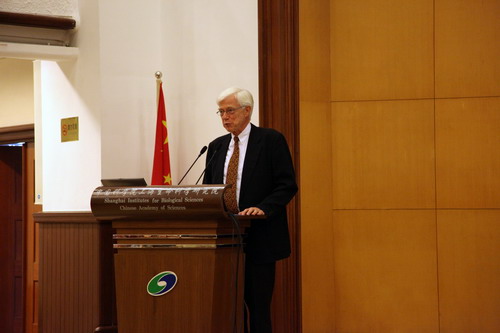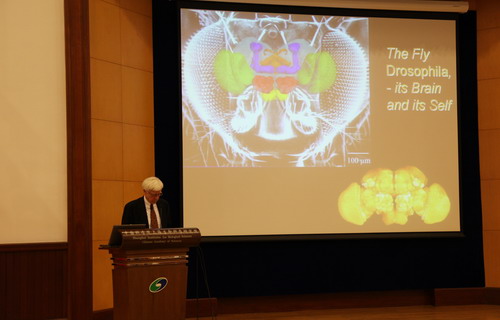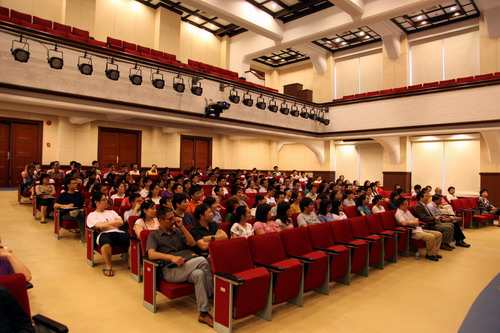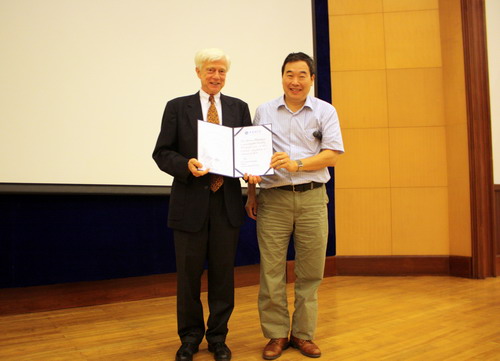Time:2011-09-16
On September 14 to 15, 2011, Prof. Martin Heisenberg from the University of Würzburg, recipient of the 2011 Einstein Professorship of the Chinese Academy of Sciences, visited ION.
Prof. Martin Heisenberg is a leading scientist in the field of Drosophila neurogenetics. His research interests focus on the cellular basis of behavior, including its initiation, control and modulation by learning and memory. Following his early mentor, Karl Goetz, and the late Seymour Benzer, he chose the fruit fly Drosophila as the experimental animal model for his work, anticipating the breathtaking advances in molecular genetics to provide the tools for making Drosophila a leading model organism for the study of brain development and function. Recently, his research focuses on Reafference control.
During his visit, Prof. Heisenberg visited several ION laboratories and talked with faculty members, as well as some post-doctoral fellows and Ph.D. students. He gave thoughtful suggestions and comments on many research projects. On September 15, he gave a lecture entitled “The Fly Drosophila - its Brain and its Self”, hosted by Prof. Mu-Ming Poo, the director of ION.
In his lecture, Prof. Heisenberg maintains that the ability of animals and humans to generate behavior on their own is a basic and important aspect of the functional organization of the brain. Using the fruit fly Drosophila melanogaster as a model organism, his team showed that flies anticipate re-afferent stimuli, generate changing perceptual hypotheses, display selective visual attention, solve problems by trying out, and can even learn that trying out is futile. He is interested in understanding the general rules of how the brain selects the right behavior from the outcome expectations for the behavioral options. In his opinion, a better understanding of activity in behavior would be highly welcome in medical research (ADHD; Parkinson’s; depression) and informatics (autonomous robots). It would also have relevance for the social sciences and philosophy.




The Albert Einstein Visiting Professorship of the Chinese Academy of Sciences (CAS) is designed to enhance the development of its leading scientists, raise the innovation abilities of its staff and strengthen their contacts and exchanges with scientific elites around the world. The program aims to invite 20 world-class scientists each year to visit CAS for up to two weeks. Those eligible for the program include laureates or potential laureates of the Noble Prize for Natural Sciences and winners of similar honors, such as the Fields Medal in Mathematics, the Wolf Prize in Mathematics, The Turing Award in Computer Science and the Tyler Prize in Environmental Science, and those who have made special contributions to a particular field.
 附件下载:
附件下载: